
A bridge between Russia and the West
Erdogan seeks extremely crucial grain deal for global food security
In the last week of October, Russia suddenly intensified the specter of new phase of “grain crisis” by abruptly suspending its participation in the secure Black Sea grain corridor but rejoined after four days because of a highly pro-active mediation and intervention by Turkish President Recep Tayyip Erdogan.
This is second time in the last four months that Erdogan has flexed his diplomatic muscles to ensure smooth grain exports from key supplier Ukraine at a time of rampant global food inflation. Apparently, the Russians temporarily suspended the deal on the pretext of a major Ukrainian drone attack on its naval fleet in Crimea.
Turkish President, who played the key role in brokering this deal under the auspices of the United Nations in July, was again quite active in persuading Vladimir Putin to reverse the suspension of this grain deal to avert a global food crisis.
The Ukrainian drone attack on the Russia navy was a rather weak justification to block the Ukrainian exports to pass through the Black Sea. It was just a tenuous excuse on the part of the Russians to bully the Kyiv government.
Apparently, three main reasons can be blamed for Putin’s deliberate attempt to disrupt the grain deal at this time; one, the grain deal is supposed to be renewed on November 19, two, the forthcoming G20 summit in Bali on November 15, and three, Russia’s desperation to force the West to ease restrictions on state agriculture lender Rosselkhozbank to facilitate Russian grain exports. In fact, the Russians want to utilise both the events to put pressure on the West to win this concession that is likely to affect the next crop of wheat in Russia.
While UN Chief Antonio Guterres is trying hard to convince Moscow to agree to extend the grain deal beyond its scheduled expiry on November 19, Putin is deliberately creating such snags with a clear intention to bargain on loosening up some of the sanctions on few selective types of transactions through the Russian banking system to facilitate the agriculture sector.
Though Putin has not yet publicly talked about its demands except the calls for the release of Russian fertiliser stuck in European ports and warehouses, and resume exports of ammonia, an important ingredient in fertiliser, through a Russia-Ukraine pipeline. Russia has been asking the Western countries to allow state lender Rosselkhozbank to restore its relations with correspondent banks despite Western sanctions. This would facilitate the bank, which has not had a major role in the international grain trade so far, to ensure smooth transactions of payments for Russian grain and other foodstuffs.
Prior to the latest stringent sanctions, such payments were routinely channeled through international banks and subsidiaries of other Russian banks in Switzerland. Putin is shrewdly trying to manoeuvre the renewal process of the grain deal by building up pressure on the Western capitals — before the start of the G20 summit — to eventually find some wedge to penetrate the stringent Western sanctions.
Putin is playing his cards very carefully. He has very deceitfully used the energy card after the invasion of Ukraine, which actually instigated one of the worst energy crisis in post-World War II era — and cost of living crisis — across the globe. Putin assumes that the Western capitals are now at the brink of exhaustion after almost eight months simmering energy and food crisis and he can now manipulate the situation to his advantage by demanding concessions for his next season of wheat and grain crops.
Erdogan, on the other hand, is enthusiastically working to carve a role as a bridge between Moscow and the Western capitals. President Erdogan is very keen to salvage the grain deal as it will certainly add value to his resume as one of the prominent global influencers.
“We agreed to discuss this extensively at the G20 summit in Indonesia,” is how he informed the media after a telephonic conversation with Putin. But there is a new twist in the story. Ukrainian President Volodymyr Zelenskyy has sternly declined to participate in the G20 if Putin attends — although Putin is yet to confirm whether he will or not travel to Bali later this month.
One of the world’s largest grain exporters, Ukraine was compelled to stop almost all deliveries after Russian invasion of the country on February 24. Putin alleges that, instead of the poorer nations, the grain is being shifted to the European states — an allegation that is categorically denied by the European leaders. With increasing isolation of Moscow, both diplomatically and economically, Erdogan has assumed a more influential role in the Ukraine imbroglio.
Ever since the Russian tanks rolled into the Ukrainian territories, Erdogan has been treading a very thin line while trying to strike a balance between Turkey’s regional compulsions and its global obligations. Turkey, despite condemning the Ukraine invasion, has desisted from showing compliance to global sanctions against Russia, and has given Russia’s sanctioned oligarchs a rather safe harbour. At the same time, Erdogan, in spite of his own somewhat stressed relationships with the Western leaders, has taken a clear stance that Russia should vacate the occupied territories of Ukraine, and Crimea.
Indubitably, Erdogan has been steering a successful diplomacy in the background of the Ukraine crisis. He is acceptable to all the parties on both sides of the table. Positioning himself as a key regional player in the dispute between Russia and Ukraine, Erdogan, along with the UN Secretary Chief Antonio Guterres, was one of the chief architects of the original grain export deal with the aim at averting a major global hunger crisis.
In fact, Erdogan also played an anchoring role in a prisoner exchange in which Russia released Ukrainian commanders who had operated from the Azovstal steelworks in Mariupol. Moscow had previously threatened to put these Ukrainian army personnel before a military tribunal and possibly execute. But Erdogan’s timely intervention and diplomatic proficiencies helped in convincing Putin to agree to this unexpected exchange of war prisoners.
Similarly, Erdogan was the main host of the aborted preliminary peace talks between Ukraine and Russia in Istanbul in March. There is no denying that President Erdogan has outshone many European leaders, including Macron and Scholz who were eager to use the Ukraine crisis to increase their presence in the European politics, in the last few months.
He is perhaps the most agile leader who is trying his best to extinguish the flames of the Ukraine war — more active than Biden and Zelensky. Faced with some massive challenges at home, fast cruising into the election year with intense economic headwind and one of the highest inflation rates in the world, President Erdogan has very effectively carved a role of linchpin on the regional political arena and the Western capitals are now relying more on his influence to find an amicable solution to the Ukraine crisis.
Ukrainian President Zelenskyy has also praised Erdogan for “his active participation in preserving the grain deal, for his steadfast support to sovereignty and territorial integrity of Ukraine”.
The renewal of the grain deal and the G20 summit are the two main episodes where Erdogan’s diplomatic skills will again be tested. The grain deal is extremely crucial for the global food security and too many hopes are pinned on Erdogan’s influence and skills to clinch a durable renewal of the grain deal in the coming days.
Catch all the The Globe News, Breaking News Event and Latest News Updates on The BOL News
Download The BOL News App to get the Daily News Update & Live News.





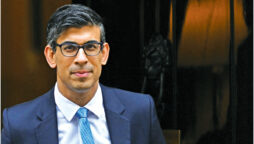
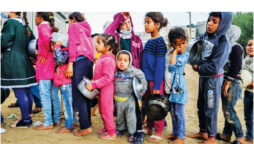
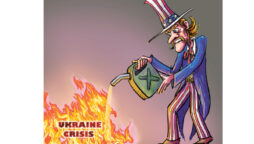
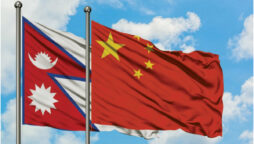
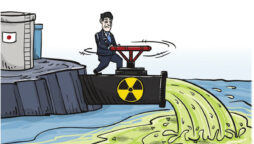

 Read the complete story text.
Read the complete story text. Listen to audio of the story.
Listen to audio of the story.